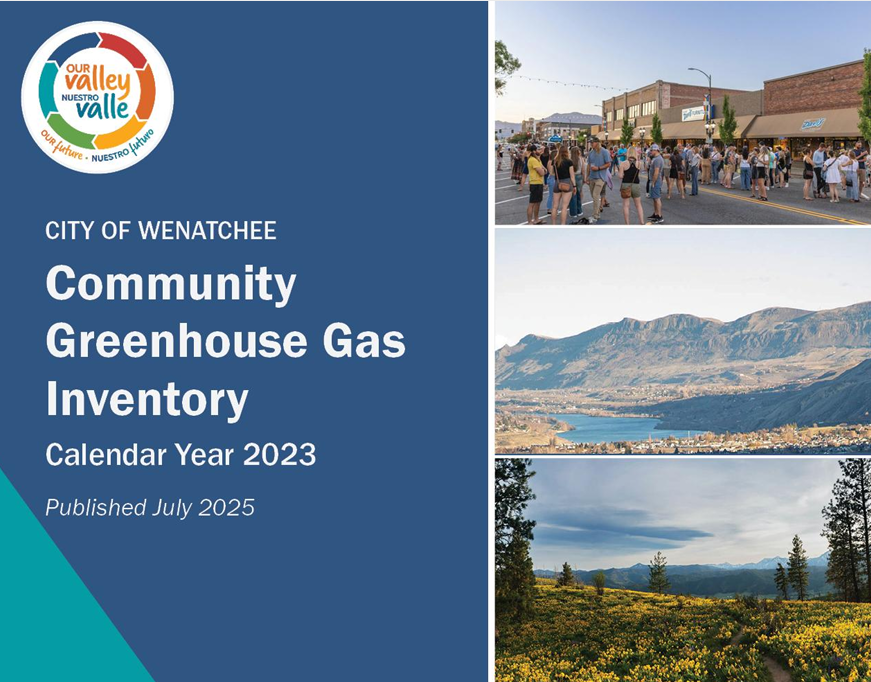Busting EV myths
- marlene0303
- Jun 28, 2022
- 4 min read
By Jana Fischback
Myths & facts adapted from Randy Brooks of Plug-In NCW, a local EV advocacy group that's a part of the NCW Economic Development District. Check out PlugInNCW.com for more info.
I think my favorite high-gas-prices joke I’ve seen so far is: “Gas prices are so high, I just saw Dolly Parton carpooling with Jolene.” As an electric vehicle (EV) driver, I try not to be smug about my cheap fuel (which, for the record, is stable at the equivalent of about $0.30/gallon). Instead, I’d like to share some common myths about EVs, in case making the switch is something you’ve been considering.
Myth: If everyone got an EV, we’d run out of hydropower.
Fact: The Pacific Northwest National Laboratory conducted a study in 2007 (and confirmed it was still the case in 2022) that we could transition 73% of light duty cars and trucks to EVs nationwide, with no additions to electrical production or transmission systems. Currently, about 2% of registered vehicles are EVs, so we’ve got a ways to go before we get too concerned about where the electricity will come from.
Myth: It won’t save much money.
Fact: Most EV drivers charge at home. Around here, our residential electricity rate is around $0.03/kWh. Assuming you drive the same as an average American, 14,000 miles a year, you would spend about $120/year charging at home. Compare that to a 25.4 mpg gas car, which uses about 550 gallons of gas per year, at $5 a gallon: $2,750. For the times when you need to charge away from home on a fast charger, it’s more expensive than at home. But it will still save money, since $0.35/kWh is equivalent to about $3.50/gallon of gas.
Myth: EVs are too expensive.
Fact: When you consider savings in fuel and maintenance, over the lifetime of a vehicle, studies have found driving an EV can save you up to 50%. Yes, a new Rivian is very expensive. And right now, finding a used EV around here might be tough, but it’s doable. I purchased a 2018 Nissan Leaf last year for about $22,000. One of my favorite things about my car is not having to get oil changes. Not only do I save money, I save time and brain space, since EVs require very little maintenance.
In addition to those savings, there are often tax rebates available, depending on the type of car you're looking to buy. For example, I paid no sales tax on my used Leaf since it was under $30,000, thanks to a Washington State sales tax exemption. Some rebates can be a bit confusing though, so be sure to do your research. [Bringing up taxes reminds me of another myth, that EV drivers don't contribute to transportation infrastructure since we don't pay a gas tax. The fact is, a nominal fee (I think it's $150) is included in all Washington state EV registration to contribute a comparable amount to what a car owner would pay in gas taxes. So, EVs are not more or less expensive in this regard.]

Myth: EVs don’t have enough range.
Fact: That depends. If you love taking road trips, a car like mine is not going to be a great choice. But if 90% of your driving is around town, and you’ve got another car for traveling out of NCW, it’s a fantastic choice. I can go about 150 miles on a charge, so I only have to charge every few days, with just a standard outlet overnight at home. I can easily take trips to Leavenworth, Lake Chelan, Quincy or Waterville from Wenatchee. If we want to go over to Seattle, we normally take my husband’s car. If you don't go out of town much, an older Leaf that goes up to 80 miles on a charge would be perfect, and very affordable. However, if you've got the budget for it, many new EVs can go 300+ miles on one charge and have the option of all-wheel drive - perfect for heading over the pass.
So maybe the first question to ask is, how much range do you really need? If you or your family depends on just one car and regularly goes out of town, consider a plug-in hybrid, the best of both worlds!

Myth: There’s not enough charging infrastructure.
Fact: There’s more than you think, and more on the way. Like range, this depends on the kind of EV you choose. Some have amazing infrastructure, like Tesla. But even if your range is limited to 150 miles, there are enough chargers between here and Seattle, or here and Spokane, to get you there, as long as you plan for a couple of stops to charge. You definitely need to allow enough time, but if you're not in a hurry and you plan ahead, I'd venture to say that any newer EV will get you where you need to go, apart from very rural destinations. Even then, some EV drivers get creative by charging at RV camping spots.
PlugShare.com is a great resource to find charging stations. There you’ll see about 50 chargers of varying types in the greater Wenatchee area and about a dozen on the way to both Seattle and Spokane.





Comments